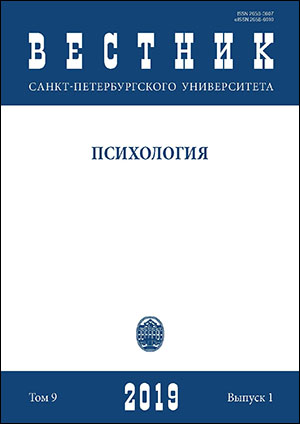Perceived stress, the locus of control and self-acceptance: theoretical and empirical approaches
DOI:
https://doi.org/10.21638/11701/spbu16.2019.102Abstract
Stress is a complex challenge in modern society. Stress experience, on the one hand, is a reaction to internal or external situations or events, on the other hand, its intensity and specifics depend on one’s subjective characteristics. From this perspective, it is important to understand the mechanisms that mediate the perception of stress. The present paper addresses the association of perceived stress, a locus of control and self-acceptance. In this project, we empirically tested four models that suggest ways these three variables — perceived stress, the locus of control and self-acceptance — function. Education and economic status were taken as covariates in the models. Participants were 336 adults aged 20–60, mean age 38. Methods were perceived stress scale, a scale of self-acceptance, locus of control test by Rotter, and a demographical survey. Our study was based on two hypotheses: (1) locus of control is a stable characteristic that would determine the way one will react to stressful events; (2) perceived stress is a negative factor that can affect even stable personality characteristics such as locus of control. Our results showed that the model that best fitted the data was the one where perceived stress affected self-acceptance that in turn affected locus of control. Our data also suggested that education and economic status were protective factors that decreased negative influence of perceived stress on self-acceptance. Thus, our results revealed that perceived stress can negatively affect personality characteristics and decrease internal locus of control.
Keywords:
perceived stress, a locus of control, self-acceptance, adulthood
Downloads
References
References
Downloads
Published
How to Cite
Issue
Section
License
Articles of "Vestnik of Saint Petersburg University. Psychology" are open access distributed under the terms of the License Agreement with Saint Petersburg State University, which permits to the authors unrestricted distribution and self-archiving free of charge.




